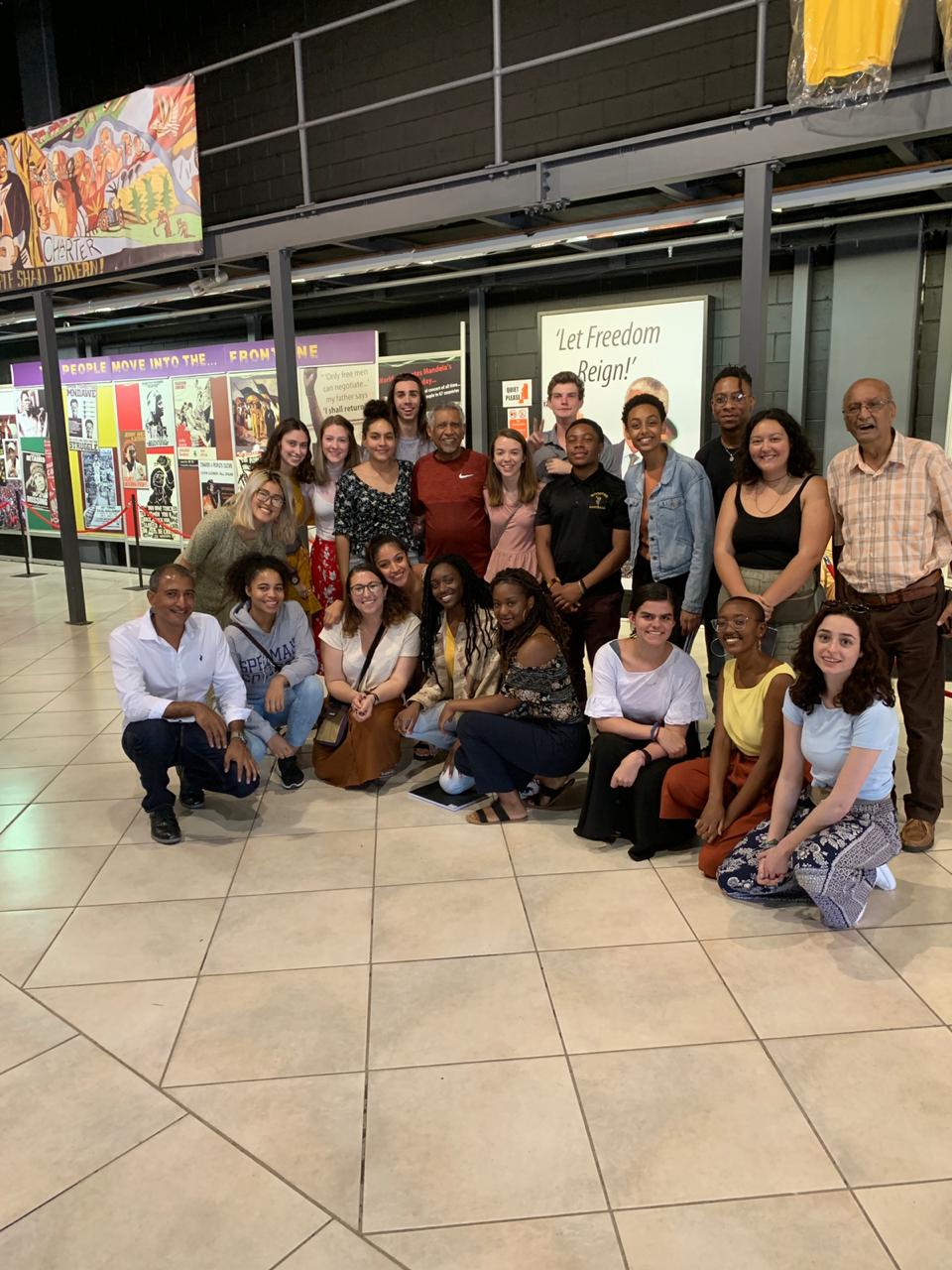By Desi LaPoole
Sathyandranath Ragunanan “Mac” Maharaj is a man who has been integral to the liberation of South Africa’s oppressed peoples from the apartheid system and instrumental in creating the country’s true democracy that exists today. For his efforts to abolish apartheid as a member of the African National Congress, Maharaj was arrested and sentenced to 12 years in prison, which he served at the infamous Robben Island alongside other revolutionaries, most notably Nelson Mandela.
One might expect such a man to be hardened from his time in prison and years of fighting crippling oppression, however within minutes of sitting down with Maharaj, his casual, almost grandfatherly demeanor lifted any tensions and heavy expectations from the room. In his burgundy Nike athletic shirt paired interestingly enough with black slacks, the now elderly man swiftly cracked one joke after another, generating hearty laughter from the crowd.
He began today’s discussion by allowing the students in the crowd to connect their experiences at home to what they observe and experience in South Africa. His lens of choice to explain how the students might connect these differing experiences was by raising an issue both South African and American society are grappling with: the topic of diversity. Although both countries are commonly regarded as among the most diverse on the planet, they both struggle with unifying under a single national identity. By linking disconnections between different groups of South Africans that American students may observe during their stay in the country to their own experiences of negotiating personal and national identity, they might better understand these issues within the South African context.
Maharaj went on to explain the incredible difference between issues of race and diversity between the two nations. One of the most obvious of these differences is the fact that while a white majority enslaved and oppressed black and native minorities in the US, the people of colour of South Africa were subjected to a racist system perpetuated by a white minority. At the end of Apartheid, Maharaj, Mandela and other political leaders were tasked with building a bridge from that white minority rule to a system that represented everyone in the country. One way they were able to start reconciling with the past was by not only bringing the truth of the crimes and atrocities committed under apartheid to light, but also by including the victims of those crimes in the process of reconciliation. However, Maharaj made a point to say he believes this process in incomplete, and as a nation South Africa should continue to dig up the past in a way that builds up the esteem and unity of the country as a whole.




